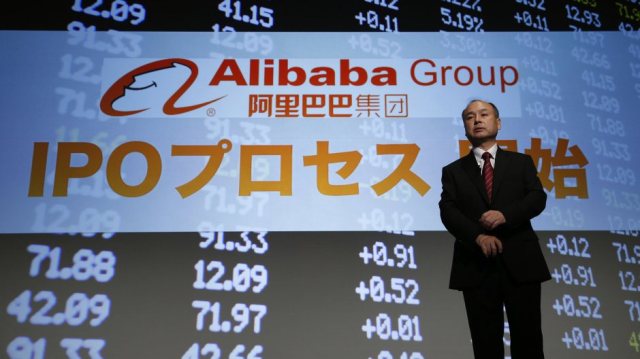
How can anti-Japan sentiment damage Alibaba’s image at home?
China’s most powerful e-commerce company Alibaba has hit a nerve with the internet community and presently setting its foot in every corner of the world. The stories about Alibaba are now making waves online. Obviously, it has become a force to be reckoned with.
For a country that has wanted a world-wide recognizable domestic company for so long, one would assume the public would flock to cheer at Alibaba’s success. How to say…not precisely, not all people in China are welcoming it with open arms. At least not the people filled with anti-japanese sentiment.
A big part of Chinese public was obviously appalled when they first found out from Alibaba’s IPO disclosure that American Yahoo and, even more surprisingly, Japanese telecom company Softbank, combined had more than 50% shared ownership in Alibaba – they’ve so strongly hoped that Jack Ma's company is a Chinese company, in the truest sense.
Softbank’s shareholding in Alibaba does not please very much the patriots at all. The prosperity of Alibaba at home was a constant reminder and symbol of growing economy which spelled into national pride, particularly in comparison to the zero success of eBay and Amazon in China. Learning the fact that the major stakeholder of their “national hero” is a Japanese company was disheartening for many people.
“So Alibaba is in reality a Japanese business? Traitor! Go away!” One commenter added bitterly.
“China’s most successful online retailer Alibaba: its largest shareholder is actually Japan’s Softbank. Very hard to accept. Can’t wait for more true-blood Chinese online retailers to rise up,” wrote a Weibo user with the unsubtle user name of “boycott Japanese goods for 10,000 years.”
“Oh my god, Japan’s claws reach everywhere!” said a third.
If a major shareholder was any other country, netizens would react differently. Even the false rumor of Japanese ownership was enough to wipe $2.4 billion off the market cap of noodle maker Master Kong last year. The lasting (antagonistic) history between China and Japan is self-explanatory. What makes it more complicated is the fact that Chinese government anti-Japan propaganda is on the rise in last years as the two nations regularly are butting heads with each other trying to determine who owns a couple of islands in the East China Sea.
In 2014, China’s State Administration of Press, Publication, Radio, Film and Television (SARFT) called for all high spot TV shows in autumn to have either patriotic or anti-Fascist themes. Put it simply, Sino-Japanese war themes. The thing is a national TV already crammed with too many bad quality anti-Japan mini TV series that point out Japan’s military violence and human rights crimes. They were made in such a hurry that often contained ridiculous dialogs which became popular internet memes. For instance, in 2012, 70 out of the 200-plus prime-time TV created in China focused on the Sino-Japanese War.
On September 3, 2014, all seven members of the Politburo Standing Committee, China’s most influential political bureau, including Chinese president Xi Jinping, made an unusual and unprecedented appearance to celebrate Japan’s World War II capitulation, or, in Chinese terms, the victory of China’s War of Resistance Against Japanese Aggression. From that day on, September 3 must be celebrated every year.
In a nutshell, the anti-Japan feeling and attitude is not going to disappear anytime soon in China. Thus Alibaba should prepare to work out the consequences of their decisions. “Should we boycott Alibaba?” A lot of patriots wondered.
Actually, it would be extremely difficult to boycott Alibaba since the giant owns around 80% of online business in China. But the “Alibaba is a traitor” sentiment is real. As one commenter noticed: “Chinese company's miracle is all due to Japan and the US.”
“Alibaba, as a company owned by Japanese businesses, you are not allowed to play the ‘be true to your country and stand by Chinese company’ card? Do you believe your customers are blind?” One commenter bitterly asked. “Alibaba is China’s shame, earning money out of Chinese people, but only to share them afterwards with foreigners.” Another netizen said.
The great news is that Alibaba isn’t without loyal consumers, who accepted the company’s step to get investment from a Japanese business by reasoning it that China had poor investment environment at the beginning. As one netizen said: “We should not accuse Alibaba. Nobody, government agency or another Chinese business, had the boldness or foresight to provide financial backing to Alibaba when it most needed it.”
 Scene from a Sino-Jap War themed TV series
Scene from a Sino-Jap War themed TV series
 Scene from a Sino-Jap War themed TV series
Scene from a Sino-Jap War themed TV series

